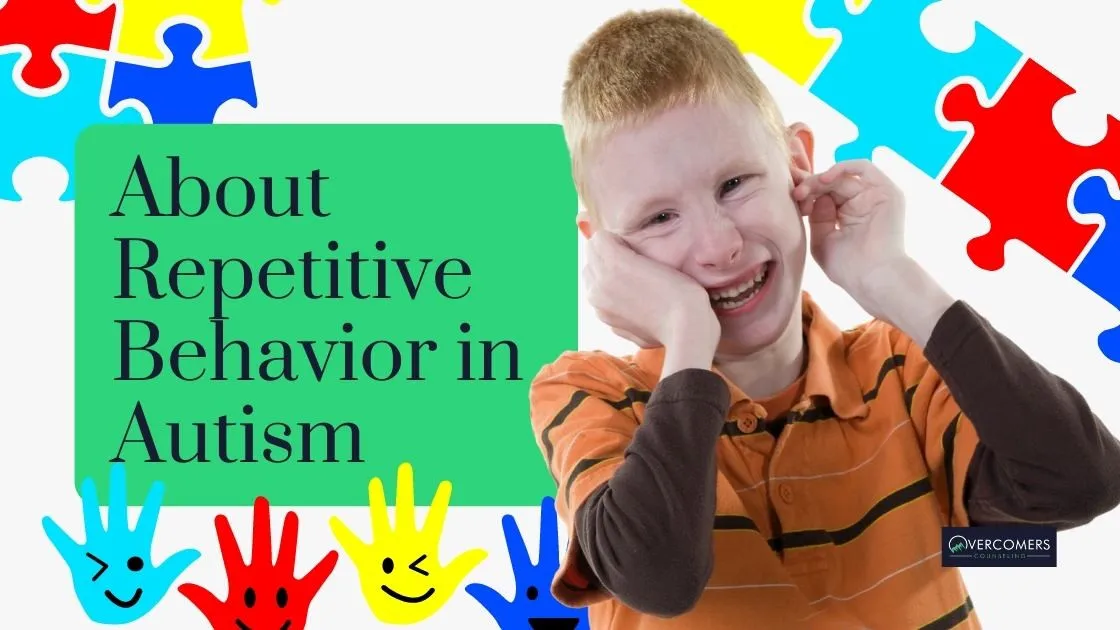What are the different types of repetitive behavior in autism?...

What are the different types of repetitive behavior in autism?There are many different ones, which people mainly use to calm themselves down. This is how they deal with overstimulated senses, activated by smells, noises, and bright lights. Repetitive behavior in autism can interfere with ordinary activities, or make it hard to get through work or school. It is present in childhood and can go into the juvenile years and adulthood. Here we will provide a brief overview of what autism is, and then discuss behaviors associated with autism. We will also discuss possible treatments. Keep reading to learn more about repetitive behavior in autism.
Healthcare providers use a checklist of criteria, and also assess the symptom severity. Using a severity scale, a provider can determine how much support an individual needs for daily function. People with autism have a tough time with both non-verbal and verbal communication. They may not appropriately use or understand a tone of voice, facial expressions, eye contact, gestures, spoken language, and expressions that one isn't meant to take literally. Social challenges include gauging personal space, recognizing their own and others' emotions, recognizing others' intentions, expressing emotions, getting emotional support from others, social situations, and taking turns in conversation. According to the DSM-5, which is the official diagnostic manual for mental health disorders, symptoms of autism include repetitive and purposeless behaviors and highly selective interests. Autism experts use the words "stereotypy" and "perseveration" to describe the behaviors.
"Stereotypy" means that the act is being repeated persistently, and "perseveration" refers to phrases, words, or details that are constantly repeated.

There are stereotyped and repetitive motor movements involved with repetitive behavior in autism. The person may also repeat the use of objects, or say words over and over. An example of this is echolalia, which is when someone repeats noises or words they have heard another person make. The person with autism may feel they have to repeat the noises, phrases, or words a set number of times. There is also delayed echolalia, in which the noise, phrases, or words the person heard are repeated after a delay which could be just a few minutes, or even hours, days, weeks, or months.A person with autism may flip objects, or their hands, spin the wheels on a toy car, or line up toys (instead of playing with them as intended). If a child playing with a toy has it moved by someone else, they may become super upset. A person who experiences repetitive behavior in autism may be aggravated by small changes in routine. That routine can include when they go to school, when they bathe, when they get dressed, when they eat, and driving routes. They may have a hard time with transitions and require the same food every time. A child may respond through a temper tantrum, while an adult may flat out refuse to participate in anything different. A person with this disorder may also be preoccupied with an object, or have a strong attachment to it.
The thing is that many behaviors people with autism exhibit are not unique to people with autism. Examples of such behaviors include toe- or pencil-tapping, pacing, nail-biting, compulsive cleaning, twirling, rocking, spinning, and a "need" to watch the same sporting events or television shows consistently. Perseveration can actually help people with autism because it may relate to an interest. For example, if someone has a serious interest in computer games, they may join gaming clubs, find others with that same hobby, and enhance their quality of life despite their repetitive behavior in autism. Their behavior could end up being disturbing to others though, as it may be hard for them to engage with the world around them if they "need" to talk about the same subject over and over. Examples of problem behaviors can be when a person bites themselves or bangs their head. The person does it because they like the feel of it, despite it potentially leading to long-term bodily damage.

No one knows for sure what causes repetitive behavior in autism, though many theories exist.If you think perseveration is a behavioral issue, there are behavioral techniques to try. These techniques include rewards and also consequences to help eliminate the behavior. One technique is social skills training. This can be done in a group or individual setting and helps people better navigate social situations. If you believe the perseveration is a chemical, neurological or anxiety issue, then there is medication available to help cut down on repetitive and obsessive behaviors. Medication may also help people appear less nervous and angry. If the perseveration may have everything to do with self-calming, and blocking out sensory input, then there are sensory integration techniques to try to control repetitive behavior in autism. They will help the person gain a sense of control and calmness. Compared to people without autism, people with autism may be overwhelmed by their senses.
A parent of an autistic child can participate in parent management training, in which they will learn ways to respond to problematic behavior. They will also learn how to encourage their child to behave appropriately. A parent may want to consider joining a support group to cope with raising a child with autism. A parent, or caregiver, needs to make sure they learn as much as they can about autism. It is also important for them to take time for themselves, and seek professional help for themselves if necessary.
A person with autism may exhibit repetitive behavior. This can ultimately lead to impaired relationships with others, and make daily activities difficult. Repetitive behavior in autism can be a problem throughout the lifespan, especially when the person experiences overwhelming feelings through the senses. Mental health treatment is available to lead the person with autism to a better quality of life.
https://www.verywellhealth.com/repetitive-behaviors-in-autism-260582
https://www.frontiersin.org/articles/10.3389/fpsyt.2021.657774/full
https://www.special-learning.com/article/repetitive-behaviors-of-children-diagnosed-with-autism/
http://www.autism-help.org/autism-repetitive-behaviors.htm
https://autism.lovetoknow.com/Repetitive_Behavior_in_Autism
https://www.psychiatry.org/patients-families/autism/what-is-autism-spectrum-disorder